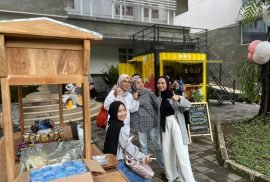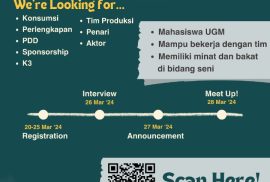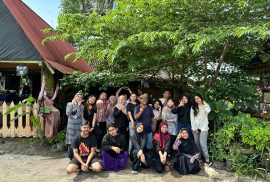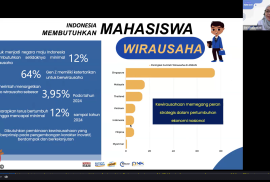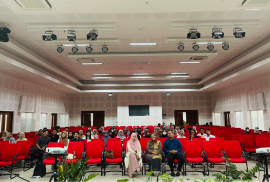SDGs 1: Economic resources | SDG 4: Quality education | SDGs 4: Enrolment | SDG 8: Decent work and economic growth | SDGs 8: Aid for trade | SDG 9: Industry, innovation, and infrastructure | SDGs 9: Cooperation | SDG 17: Partnerships for goals | SDGs 17: Development assistance
The inaugural program of Perpustra UGM which was named “NGABUBUREAD”, was held on Thursday, 28th of March 2024 at 3 until 8 pm at Perpustra FIB UGM, this program was a soft opening event for Perpustra UGM, presenting discussions about the twists and turns of the book industry, providing space for the expression of reading literary works, and inviting anyone who is interested in the field of literacy to join the Perpustra community, namely TEMAN-KU. At the NgabubuRead event, Perpustra activated the registration of TEMAN-KU (Teman Kuning), a community that would be a friend of literacy growth with Perpustra.
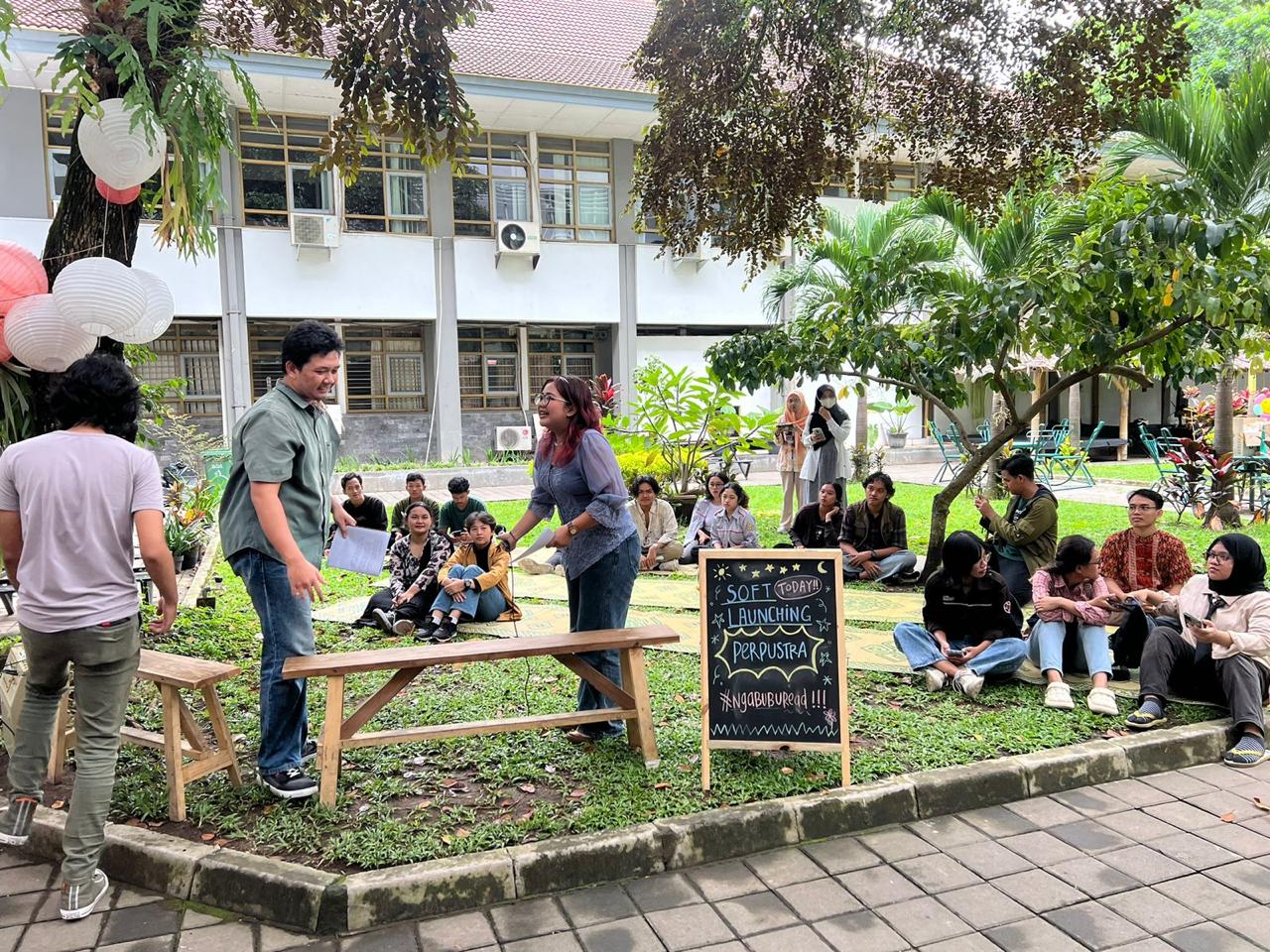
Perpustra, this container-shaped library is not just a place to read, but also a creative place to maintain a shared literacy ecosystem to realize these efforts. Furthermore, they establish the TEMAN-KU (Teman Kuning) community as a place where all people grow together in literacy. This space can not only be used by local students, but can also be used by local publishers in Yogyakarta and other publishers to introduce literacy.

In addition to being a place for creativity, Perpustra can also be a place for people to sell and leave books. Perpustra is open every weekday (Monday-Friday) from 12 to 8 pm. Perpustra also offers opportunities for those of you who have the same goals to collaborate by contacting the phone number: +6285742473943 (Anggita Triyana) or email: perpustra.ugm@gmail.com. So far, Perpustra’s collaborators include Kitabisa, Kompas.com, Gramedia, Rekata Studio, bloc, Yogyakarta Literature Festival, Amnesty International, Bentara Budaya, KPG, Baca Bareng, Rumah Dongeng Mentari, Festival Lestari, Pasar Wiguna, Festival Kata, etc.


